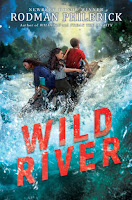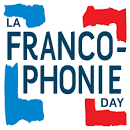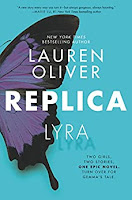Creating goals and objectives for the year won't do you any good, if you forget about them. One of my objectives this year for my Community Building/General Marketing/Branding Goal is to check in with my goals and objectives quarterly. I want to make sure I'm spending my time the way I'd planned to and not on drifting around beginning and abandoning random projects.
It's the end of the first quarter, and here I am, checking away. Additionally, I'm thinking about what I can do for these goals and objectives during the next quarter of the year.
Goal 1. Finish a draft of YA thriller that could become an adult thriller. It has a name this year, 143 Canterbury Road I have been working on this, but it's going slowly. I wish I could remember how far along I was on this at the beginning of the year. I think I've done 3+ new chapters in 2021.
Objectives:
- I haven't work on this for a few months, so I'll need to reread what I've done to bring myself back up to speed. Did that.
- Go over the outline/blueprint. Did that, though it is an ongoing process. I'm always tinkering with the outline/blueprint.
- Assign writing tasks to time frames each week. That's gone by the wayside
- Just work on scenes. Don't worry about connecting things.Hmm. Perhaps things would go faster if I remembered to do this.
- Read YA thrillers. I did read one, and I'm reading an adult thrillerish book now.
- Read history, since that's a significant factor for a character and maybe in other ways. I finished two history books this winter that I started last year.
Plan for next quarter:
I'm going to commit my May Days project to this goal. Additionally, I have a brand new copy of Jill Lepore's These Truths that I got for Christmas that I'll start dipping into. (It's a huge book.) In the meantime, I'll keep slugging away at this.
Goal 2. Concentrate on submissions and concentrate on increasing the number of submissions I make. I've made 17 submissions so far this year, which is fantastic for me. I only did 50 all last year. I've had a humor piece accepted and published, and this weekend I got a fantastic rejection from a journal.
Objectives:
- Submit book length projects to the agents I researched last month. Done
- Spend more time with essay Facebook group and flash Facebook group. Those people are
publishing and share their work, exposing me to new markets. Which is
not stalking them. I have not done enough stalki--spending time with this group.
- Use that agent Twitter list I made a while back. I have made an attempt at this.
- Use that publications Twitter list I made a while back. I run my eyes over this occasionally.
- Do a lot more reading of markets for short-form writing. I need to do a lot more of this.
- Not to brag, but I got my first rejection of the year yesterday.Yeah, there's been a lot more of that. But as Gina Barreca says, "Finding your audience means being promiscuous with your work." So I view rejection as a good thing.
Plan for next quarter:
I dedicated January and February to submitting one project, March to another. April will go to a third one. The summer is going to be dedicated to submitting short-form work.
Goal 3. Work on short-form writing, essays and short stories.
I think that humor piece I published was written this year. I've also stepped up coming up with daily ideas for writing projects, many of them short form. Otherwise, this first quarter has been spent primarily on Goals 1 and 2.
Objectives:
- Commit a month or two to flash writing. I was happy with how that worked this past year. That has happened...yet.
- Look for more on-line writing classes/workshops. I've taken two very good workshops.
- Commit more time to reading essays and short stories. Have not done much of this.
- Tinker with the 365 Story Project. Haven't touched it.
Plan for next quarter:
I'm planning to commit the summer, which starts in June, the third month of the next quarter, to short-form writing and submitting. The workshops I took were very generative, and during them I started revising old projects that I can continue in the summer.
Goal 4. Community Building/General Marketing/Branding
Objectives:- Provide social media support for writers/bloggers generating diversity material.They are part of the monthly new book posts I do.
- Pay more attention to community events like Multi-Cultural Children's Book Day; plan ahead for reading to support these events. I started strong with this, but fell down on Women's History Month.
- Continue the monthly childlit book release posts Doing that.
- Attend virtual book launches and promote here. I have done that.
- Continue with Original Content. You're seeing that.
- Continue with promoting Original Content at Facebook communities, Goodreads' blog, and Twitter. Doing that.
- Get into the habit of checking my monthly plans in my bullet journal. I actually am doing this. I'm surprised, too.
- Check-in with goals and objectives quarterly. I'd say "monthly" but that was an objective for last year that I didn't touch. You're looking at it.
Okay, so now I know what I've done, and I know what I'm going to do. How about you?



































